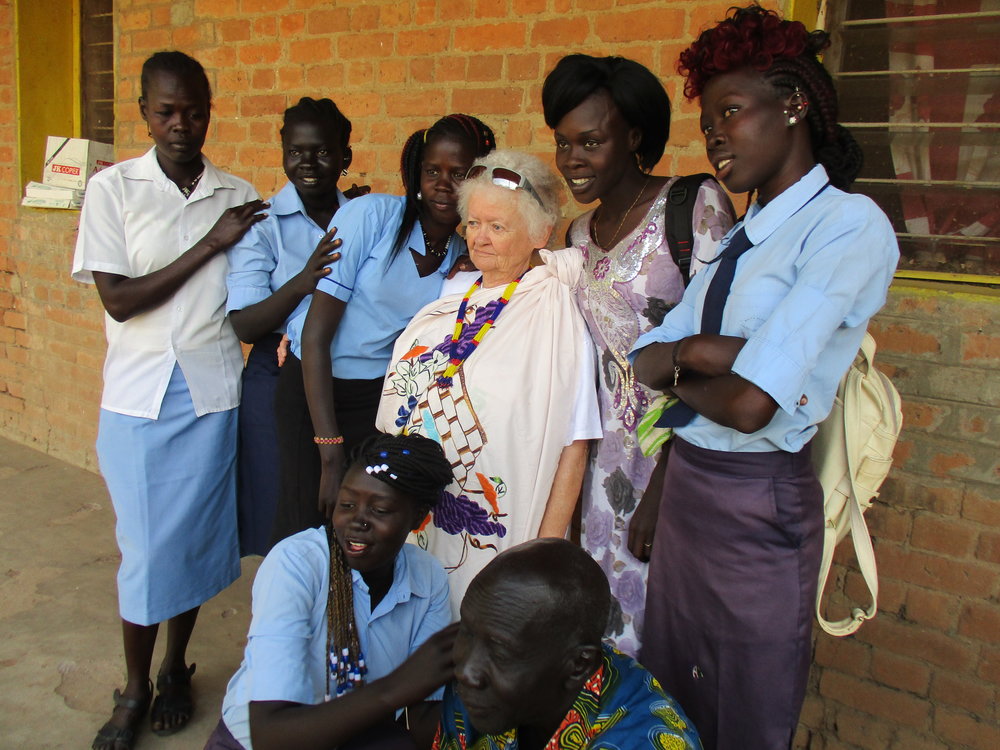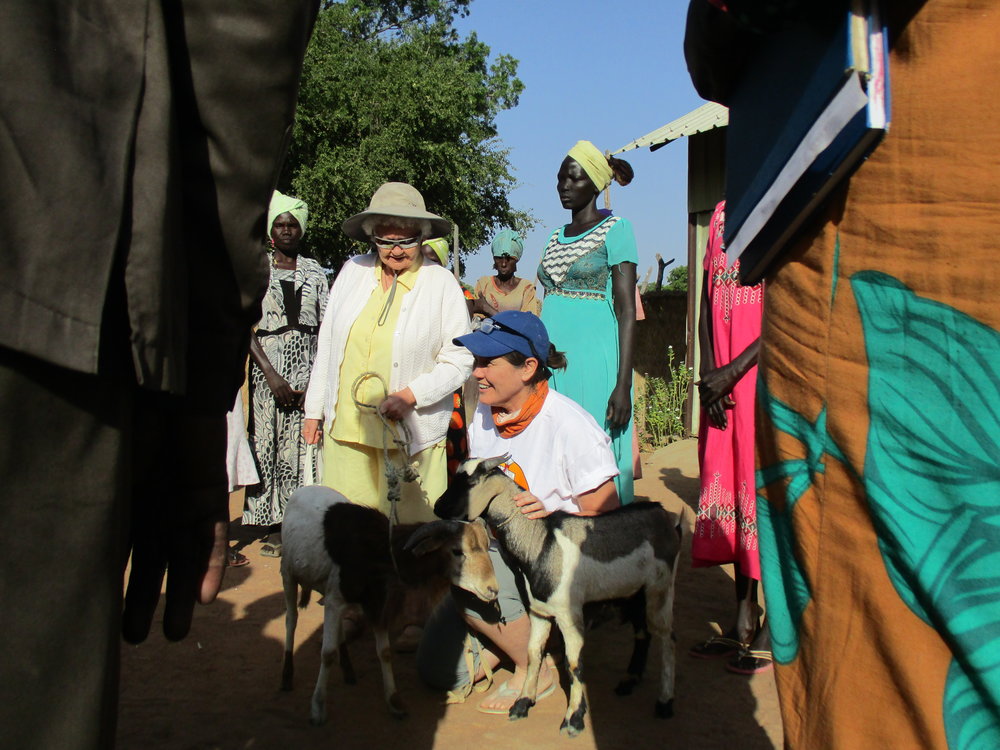 On January 12, 2019, five women who are part of a small NGO called CASS (Canadian Aid to South Sudan) founded by Jane Roy and Glen Pearson, left Toronto to spend two weeks with the people of South Sudan. We visited the people who live in the north west state of this very new and struggling country. This was my second trip to this area. I was moved by how the people warmly welcomed us with song, drums and music.
On January 12, 2019, five women who are part of a small NGO called CASS (Canadian Aid to South Sudan) founded by Jane Roy and Glen Pearson, left Toronto to spend two weeks with the people of South Sudan. We visited the people who live in the north west state of this very new and struggling country. This was my second trip to this area. I was moved by how the people warmly welcomed us with song, drums and music.  The children greeted us at the plane and asked us, over and over again, to take a “photo”. CASS has been coming for many years and each year the welcome seems to get warmer. What I have come to realize, is that they do not welcome us only because we are able to bring a little aid with us, as helpful as that is, but that they welcome us as friends. They seemed so grateful that we have not forgotten them. In some small way we are witnessing their reality and they ask us to let others know. They do not want to be forgotten
The children greeted us at the plane and asked us, over and over again, to take a “photo”. CASS has been coming for many years and each year the welcome seems to get warmer. What I have come to realize, is that they do not welcome us only because we are able to bring a little aid with us, as helpful as that is, but that they welcome us as friends. They seemed so grateful that we have not forgotten them. In some small way we are witnessing their reality and they ask us to let others know. They do not want to be forgotten  by the rest of world.
by the rest of world.
The beginning of this new country is still very fragile, but a new peace accord has been signed by the factions in the country. We attended a peace rally which was historic. It was a very hot afternoon, and we sat through many speeches that I did not understand because of language barriers. But I could understand the hope people had for a better future. I saw in their faces, heard it in their music and dance, and witnessed it in the many hundred who showed up for this rally.
 South Sudan has a long way to travel to become a fully functioning country. The people are tried of fighting, the young want to go to school, and these people want their country to develop and become a fully functioning democracy. They know it will not be easy, but they want to try. Because of that, I am richer because I have met so many of these people. I am grateful that I can bring their stories back to our country. Together we stand in solidarity for peace because it is a longing living in the hearts of all of us. - Sister Joan Atkinson, CSJ
South Sudan has a long way to travel to become a fully functioning country. The people are tried of fighting, the young want to go to school, and these people want their country to develop and become a fully functioning democracy. They know it will not be easy, but they want to try. Because of that, I am richer because I have met so many of these people. I am grateful that I can bring their stories back to our country. Together we stand in solidarity for peace because it is a longing living in the hearts of all of us. - Sister Joan Atkinson, CSJ






